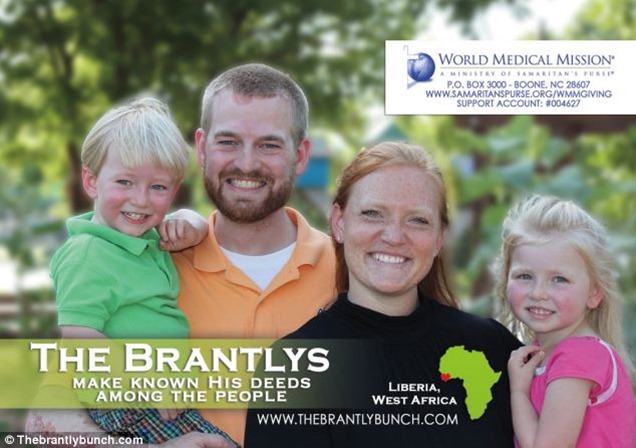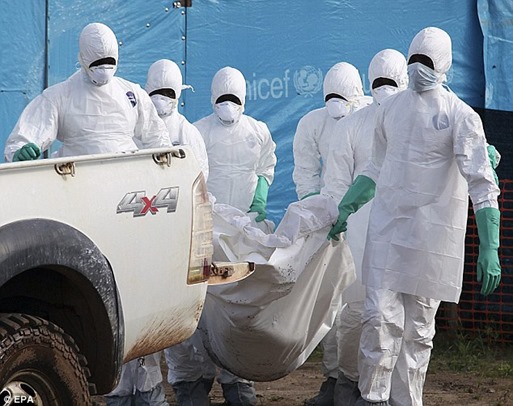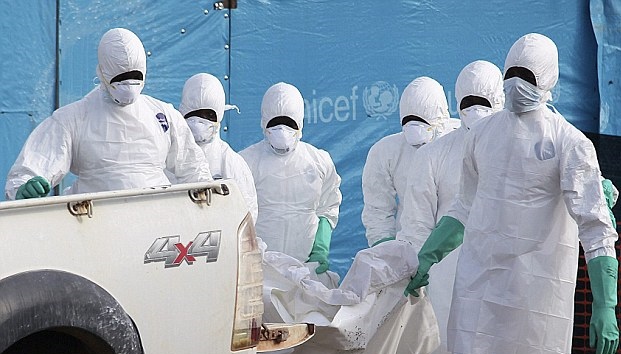Daily Stormer
July 30, 2014

A lot of very bad things come from Africa. Rape, murder and new types of diseases.
But the thing about the British people is, they love this stuff, because if they didn’t, that would be racist.
And the only thing worse than a massive Ebola outbreak is racism.
There was nothing unusual-looking about the passenger arriving at Heathrow from Lagos.
He was carrying one of the most deadly diseases known to mankind, but it wasn’t noticed by overstretched Nigerian airport officials before departure, nor by attendants on the flight, despite their special training to watch out for feverish passengers.
Because Ebola is a disease that has an incubation period of between two and 21 days, it’s more than likely that the final line of defence — immigration staff at Heathrow — failed to notice anything untoward about him either.
It wasn’t as if he was so unsteady or unwell that he couldn’t answer basic questions.
And so he was waved through.

Little did anyone realise that his initial flu-like symptoms — fever, headache, achy limbs, sore throat — would soon become something much, much worse.
Ebola, a disease which is fatal in 90 per cent of cases and for which there is no vaccine and no known cure, was now in Britain for the first time.
It would soon be spreading across the country, killing almost everyone it touched.
Fortunately this is an imaginary situation, but an Ebola epidemic is the nightmare scenario which inspires Hollywood disaster movie writers and keeps public health officials awake at night.
However, there is now widespread alarm among experts that it could actually happen, because the deadly disease has spread for the first time from remote jungle villages to claim its first victim in Lagos, one of Africa’s most sophisticated cities, with air links to major cities worldwide, including London.

And woe betide anyone who comes in close contact with an Ebola victim.
While the virus’s one virtue is that it isn’t as easily transmitted as, say, an airborne influenza, it is highly contagious if you come near enough to be infected by any sort of bodily fluid.
This means not only contamination from vomiting and diarrhoea — the next stage after the fever and headaches — but saliva from a kiss, sweat from a mopped brow, or even, it is thought, a sneeze.
If a sufferer is looked after by loved ones, only the most ruthless sanitation regime will save them. If he or she seeks medical help, risks could be even greater.
As one British expert told me yesterday, if an Ebola victim was misdiagnosed and ended up being admitted to a normal hospital ward, the ‘consequences would be disastrous’ as nurses and doctors unwittingly passed the virus to other patients and colleagues.

The final stages of the disease are hideously unpleasant as the virus punches holes in veins, often causing massive internal haemorrhaging and bleeding from the eyes, ears, mouth and other orifices.
Death is generally caused by multiple organ failure.
Just as well, then, that no one ever gets Ebola beyond a handful of unlucky souls in the remote rural villages of equatorial West and Central Africa, where locals ignore warnings and still eat the fruit bats and monkeys that are the chief carriers of the disease.
At least, that’s what public health experts have been saying for years.
